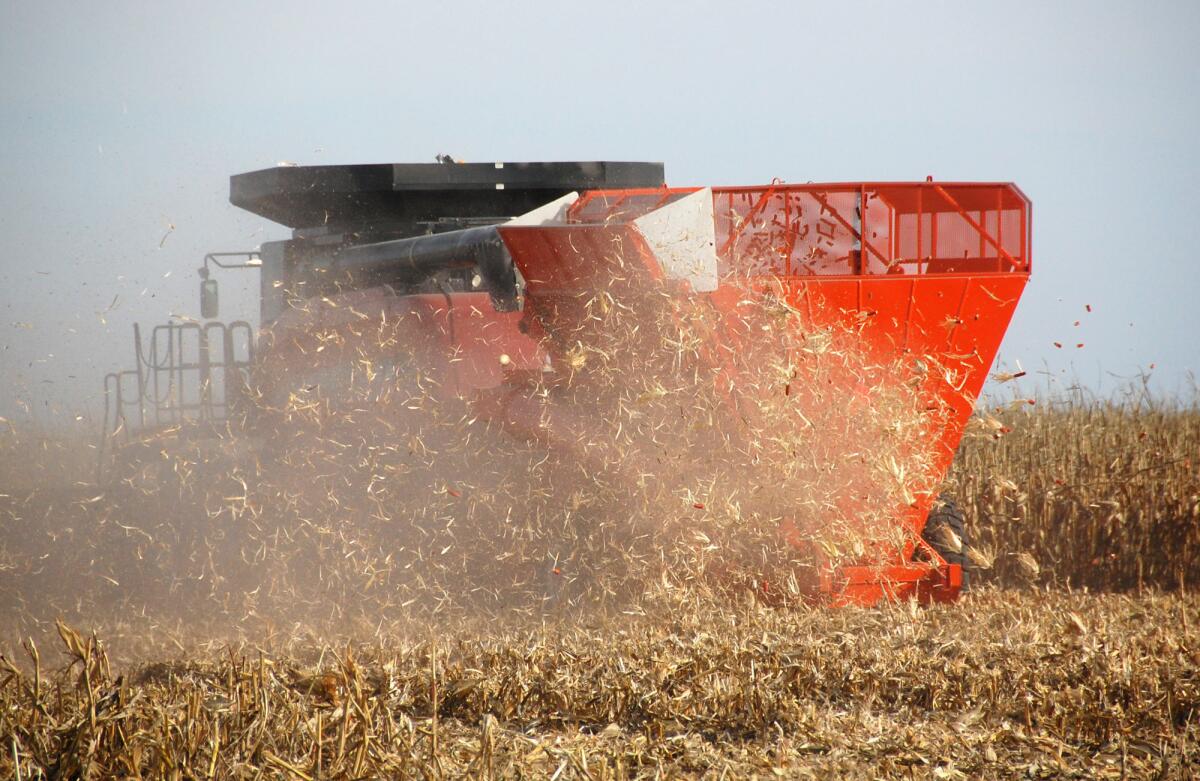Biofuels may be worse for environment than gasoline in short run, study says

Biofuels are known as an environmentally friendly alternative to gasoline. But two recent studies call into question how green they really are.
According to one study published in the journal Nature Climate Change, fuels derived from corn stover -- or the leftover corn leaves and stalks following a harvest -- can actually emit more carbon dioxide than gasoline.
Researchers found that removing the corn scraps for fuel ended up releasing about 7% more carbon dioxide than regular gasoline over the short run.
PHOTOS: World’s most expensive cities
Over the long haul, biofuels are still better for the environment than gas, the report said. However, the study concluded that these kinds of biofuels should not qualify as renewable fuels as defined by the 2007 Energy Independence and Security Act.
In another strike against biofuels, a separate report from the Intergovernmental Panel on Climate Change found that some biofuels release indirect emissions -- including those from crops planted and harvested -- that can contribute to total emissions that are worse than those of gasoline or diesel fuels.
Those reports have amped up debate among environmentalists, lawmakers and the energy industry about the relative benefits of biofuels, which have received millions in federal funding.
ALSO:
For DWP customers, a long wait to go solar
U.S. energy imports hit two-decade low in 2013
Think you pay too much in taxes? 52% of America agrees with you
Follow Shan Li on Twitter @ShanLi
More to Read
Inside the business of entertainment
The Wide Shot brings you news, analysis and insights on everything from streaming wars to production — and what it all means for the future.
You may occasionally receive promotional content from the Los Angeles Times.










